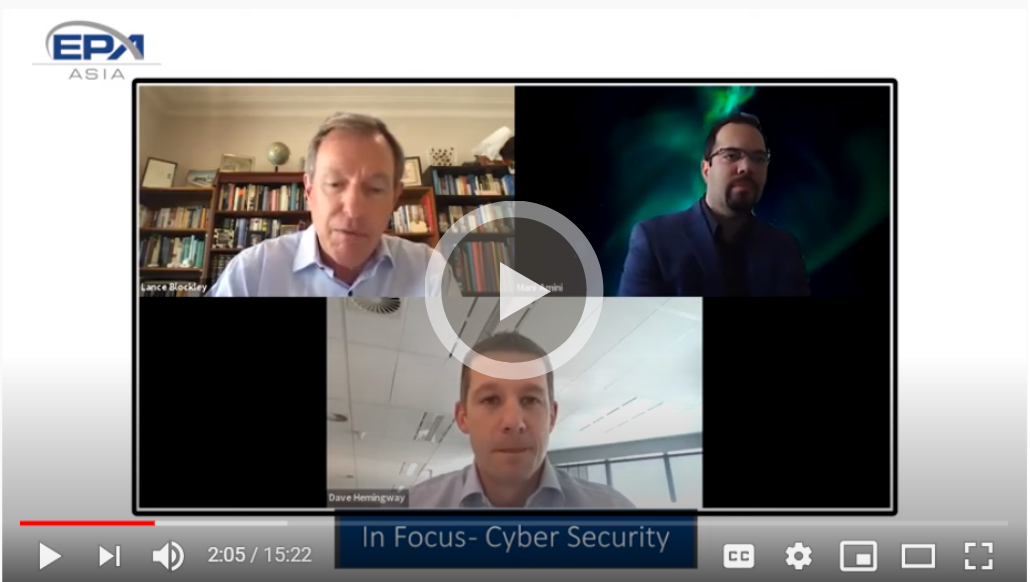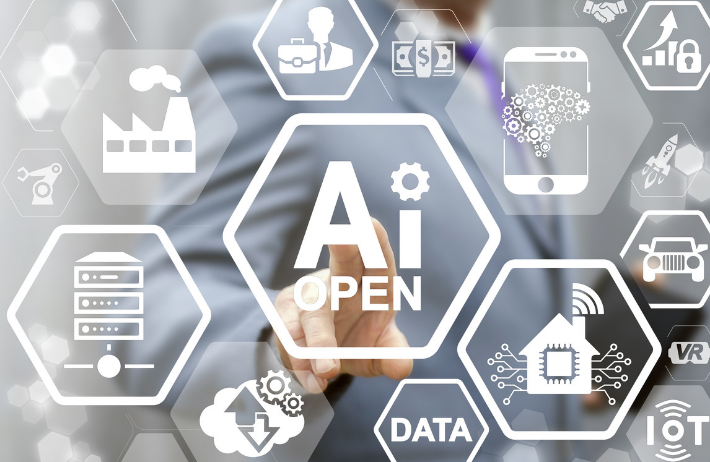News
News

ID8 Tour | Money 20/20 – Blockchain & Crypto
Blockchain and
crypto have made a surprising resurgence to the agenda at Money 20/20, likely
driven by the growth in central bank currency pilots and collaborations into potential
use cases for government issued digital currency. The Indue client tour
participants absorbed broad learnings on how the concept of a fully digital
decentralised network could benefit customers and clients in the payments and
banking sectors.
A wide spread of
blockchain use cases were presented, everything from connected cars through to
micro payments, with the major feature being the ability to move money in
real-time at lower cost, a presumption that we see either prove or disprove
itself in the years to come.
The focus on the
use of crypto in payments has been heavily on enabling cross-border
transactions, as well as the challenges posed by increasing regulation.
The bold headline
from proponents of the technology at Money 20/20 was that everything will be on
blockchain – it’s only a matter of time.
This optimism
comes with words of warning. These technologies continue to be developed
through a cycle of uncertainty and regulation remains a major challenge. With
improved regulation we will likely see a more stable and genuine value emerge
for crypto and the development of more businesses with underlying strength.
With these
expansive developments in the fintech space, Indue continues to stay tuned to
these innovations to provide our clients and their customers with strategic
guidance and forethought on the payments landscape of the future.

id8 Tour | Money 20/20 Diversity & Culture
The Money20/20 conference has given us the opportunity to hear from a wide range of world-class speakers, including global entrepreneurs and even a Grand Slam tennis champion, who have all touched on the intrinsic link between organisational culture, diversity, and performance.
The companies that are best positioned to establish a competitive edge are the ones that embrace a culture of prioritising diversity of people and thought, and equally, this diversity is the best form of due diligence when developing new business models or entering new markets.
In a broad ranging discussion about fintech and start-ups featuring Serena Williams, we heard about new business models and solutions that are focused on solving problems for customers, leveraging the power of partnerships, and driving a competitive edge through organisational culture embracing diversity.
We were also fortunate to hear from several women who have founded new payment fintech companies in the past two years, including Kontempo – a Mexico-based bank focused on providing credit to small businesses, Lucy – which is providing funding for female entrepreneurs, and the competitive edge through embracing diversity was a recurring theme.
The theme of modernising core was prevalent, ensuring foundations are built on future proofed architecture. Another common theme in this vein was ‘build core, partner everything else’. This includes leveraging partnerships for insightful and innovative product design, and the theme of diversity featured again through partnerships that support organisational diversity, with a US Bank focussing a commitment to diversity though partnering with fintechs who are focused on minority/women only businesses.

Indue Partners with BioCatch: Fraud detection technology fighting back against financial cybercrime
Fraud detection technology fighting back against financial cybercrime.
A new partnership with leading digital security analytics provider BioCatch will integrate behavioural biometrics into Indue’s end-to-end payment solutions, providing customers with increased protection against financial cybercrime.
Behavioural biometrics technology empowers users of online banking to make secure transactions against the rising threats of cybercrime, which cost Australians more than $300 million in 2021.
Indue Chief Risk Officer Jane Hinton said the new partnership with BioCatch will enable Indue to tap into the value of world-leading fraud protection analytics technologies to enhance the safety, security and trust of customer’s online transactions and digital banking.
“In today’s digital world, detecting and preventing fraud & mitigating the impact of social engineering scams is important as ever, so we are very pleased to be partnering with BioCatch to integrate advanced biometric technology into our payment solutions,” Ms Hinton said.
“We want to minimise the risk and maximise the security of online banking and embedding BioCatch’s best-in-class behavioural biometrics technology into our end-to-end payment solutions will create a seamless and safe digital experience for users.
“Most importantly it will provide additional peace of mind that online transactions through Indue’s payment platforms are secure and safe from the ever-growing threats of online financial crimes.”
The technology works by continuously monitoring digital movements and looking for signs of fraudulent activity, which is pinged immediately once identified. The AI systems observe behaviour such as mouse movements, typing cadence and interactions with the screen to calculate a risk score and distinguish between genuine and criminal activity.
BioCatch specialises in behavioural biometric technology and provides banks with account takeover protection, mule account detection, social engineering scam detection and account opening protection, providing institutions with comprehensive insights to fight back against cybercrime.
Find out how our Financial Crime solutions can help your business.

Orion Financial Crimes – Case Study
Fighting financial crime with award-winning technology
Orion Financial Crimes – Case Study
The growing sophistication of financial crime remains an ever-present threat, particularly as we move to a predominantly cashless society, and engage with more ways to pay. Left exposed or unprotected, fraudsters can swiftly take their toll on financial institutions’ bottom line and reputations.
To stay on top of innovative financial crime perpetrators, financial institutions must have the best people, processes and technology in place to efficiently detect and monitor fraudulent behaviour. This valuable mix can sometimes take years to develop without the support of specialist providers.
Financial institutions are often faced with having to run multiple, costly technology solutions that tackle independent payment channels. This can lead to siloed people and processes supporting these multiple solutions. Managing multiple solutions also runs the risk of delaying the detection of fraud and potentially missing a fraud event entirely, exposing vulnerabilities for fraudsters to exploit.
These were just some of the challenges Indue’s client — a well-known Australian bank — faced while attempting to protect its 400,000-plus customer base prior to engaging Indue’s financial crimes experts.
Results we achieved for a leading Australian bank
-
50% cut in fraud losses in the first month
-
60% reduction in false-positive fraud results
-
400,000-plus customers better protected
Challenges
As a leading Australian bank, reliable fraud monitoring was essential to keep up with the fast, real-time transaction speeds of today’s payments networks. The bank was fighting fraudsters without the ability to decline in-flight transactions in real time, the outcome was fraudsters had the opportunity to achieve far greater attacks utilizing velocity and speed to their advantage.
The bank’s incumbent technology was also returning significant false-positive fraud results, thereby clouding analyst assessments and creating cost inefficiencies for operations. This enabled real fraud to hide behind genuine behaviour, which was often missed during assessments.
Critically, fraud was being monitored only during office hours by the client’s operations team. This often resulted in a backlog of events for next day review, while providing an opportunity for perpetrators to schedule attacks during out of hours and unmonitored periods.
How Indue helped: 5 key priorities
Shared vision: Indue’s financial crimes experts were able to see the bigger picture and work in partnership with the bank on their longer-term business planning goals and objectives, to provide a solution that could grow and adapt over time.
 Partnership: The client was seeking a supplier who would take a true partnership approach. A partner who could work with them to co-create an integrated solution that could simplify the management of multiple payment channels and return better results than its existing provider.
Partnership: The client was seeking a supplier who would take a true partnership approach. A partner who could work with them to co-create an integrated solution that could simplify the management of multiple payment channels and return better results than its existing provider.
Collaboration: A key success factor was the focus on collaboration between the client and Indue. The teams worked closely to ensure each other’s strengths were being leveraged, that the client was listened to and understood, that there was clarity on the problems that needed solving, and that there was alignment on identifying technical challenges and key performance outcomes.
Understanding: Built on years of experience, the Indue team understands that the closer you can work with a client’s team, the better the outcome. It was through establishing a close working relationship Indue was able to provide direction & guidance to help them decide how they wanted and needed to interact with the service. As the client was reshaping their own fraud management approach, Indue was able to provide guidance and counsel.
Feature Rich Service: The bank required a 24×7 alert triage service thereby providing round the clock monitoring and protection for their 400k+ customer base. Powered by award-winning IBM Safer Payments, the Indue solution was able to reduce the risks associated with the client’s multiple payment channels. Further, Indue’s investigation Case Management tool made an outsourced service much easier to manage back in the clients own shop. Finally, the Indue aggregation model was able to deliver insights from across a broad range of industry financial crime learnings, providing the client with greater visibility of the financial crime landscape.
“Financial crime is a unique, fast-paced and often highly complicated problem to solve. It requires people, process and technology working together harmoniously to achieve results.”
Dean Wyatt, Head of Financial Crimes, Indue
Results, return, future plans
Following the implementation of Orion Financial Crimes Solution, the bank saw immediate results with card fraud losses cut by 50% in the first month alone. More fraud was detected through less alerts and false-positives reduced by 60%.
Better outcomes overall were achieved in prevention and detection by addressing both fraud and scams, and significantly reducing chargebacks to customers.
The bank is now looking to add further payment channels to Indue’s solution, taking full advantage of the single-view capability of Orion Financial Crimes and IBM Safer Payments.
Critically, the bank can now focus its attention on higher value programs to drive its customer-first value proposition while working with Indue to protect its customers.
Orion Financial Crimes
Orion Financial Crime’s ability to inherently integrate people, processes and technology provides a cutting-edge solution with real-time capability, integrating artificial intelligence and machine learning to deliver a 24/7 fraud monitoring solution.
 Launched in 2003, Orion Financial Crimes went live with IBM Safer Payments in 2018, providing real-time fraud & scam detection and management, anti-money laundering and counter-terrorism financing monitoring, sanctions checking across Australia and New Zealand.
Launched in 2003, Orion Financial Crimes went live with IBM Safer Payments in 2018, providing real-time fraud & scam detection and management, anti-money laundering and counter-terrorism financing monitoring, sanctions checking across Australia and New Zealand.
To find out how you can tap in to Indue’s team of experts & specialists in fraud management contact us today.

InFocus Cyber Security Interview
Is there a risk that security is compromised when providers compete on convenience?
Cyber security interview with Dave Hemingway by Lance Blockley, InFocus
 Emerging Payments Association’s InFocus takes a look at Cyber Security, a theme that is more important than ever, following the wide-scale shift to remote working, and the increase in usage of e-commerce and digital identity.
Emerging Payments Association’s InFocus takes a look at Cyber Security, a theme that is more important than ever, following the wide-scale shift to remote working, and the increase in usage of e-commerce and digital identity.
In this first interview for InFocus, Lance Blockley is talking to Mani Amini CEO at Secure Forte and Dave Hemingway CCO at Indue.

Artificial Intelligence and Machine Learning: Human vs Machine?
Artificial Intelligence and Machine Learning: Is it Human vs. Machine?
The terms ‘Artificial Intelligence’ and ‘Machine Learning’ seem to be buzzwords in the finance industry.
Artificial Intelligence (AI) and Machine Learning technologies are set to revolutionise an industry based on numbers but also an industry still traditionally dependent on human expertise, analysis and creative intelligence to progress and prosper. Some proponents of these processes believe that it will be a symbiotic relationship between man and machine. Others believe that their introduction will mean the demise of the human worker. So what are these concepts and how will they impact the financial services?
AI vs Machine Learning
Artificial Intelligence is a board term, but was succinctly defined by Andrew Moore, Dean of the School of Computer Science at Carnegie Mellon University as “the science and engineering of making computers behave in ways that, until recently, we thought required human intelligence”. A modern day example of AI would be Apple’s beloved digital personal assistant Siri, who can assist in finding information, creating events and providing directions purely based on voice recognition. Another example would be self-parking cars, whereby the vehicle will park itself using spatial and proximity information without any human intervention.
Machine learning is a branch of AI that relies on analysing data to automatically improve itself through experience. Netflix has fully incorporated machine learning into its platform by using predictive technology to make recommendations based on what the viewer has previously watched or rated. Music streaming providers such as Spotify or Pandora also use machine learning to recommend new artists based on what music users have listened to in the past. Recommendations continue to get refined and improved as the platforms continue to learn and analyse the users’ choices.
Implications to Financial Services
Based on how society has already embraced these powerful and useful technologies in other sectors, it was only a matter of time before they infiltrated the finance industry. A study conducted in the UK identified that 86% of business leaders in the financial services sector said they were already using these technologies. The World Economic Forum published a report earlier this year indicating that AI is fundamentally changing the physics of financial services. The bonds that have traditionally held together the constituent parts of financial institutions have been transformed ushering in a new age where data equals capital. Manual processing is giving way to programmed automation. Generic campaigns are being replaced with targeted marketing. Algorithms are usurping spreadsheets. The fabric of payments is evolving.
Advanced Data Processing & Automation
According to McKinsey estimates, banks do not realise the value of more than 80% of the total data collected by them. Therefore, there is a data mine that is waiting to be tapped. AI will help organisations realise the full potential of its data. AI can effortlessly consume large amounts of data, process the information faster than human efforts and can provide insightful outputs based on inference. The more data that can be processed, the more refined and accurate the data analysis results.
By allowing AI to extrapolate from data, companies will gain insights on their customers, which can lead to more customised products, services, communication and advice. The speed of the computation can be leveraged to enable a faster feedback loop, which will continually learn and provide updated insights thus allowing adaptability of product development and marketing strategies. Organisations will also see increases in productivity as a result of automation and machine learning. Time-consuming work such as compliance reporting, customer on-boarding communications and administrative documentation can be made more efficient and accurate with AI-powered automation.[
Personalised Customer Experience
These technologies will give rise to a more personalised customer experience. One example is the use of chatbots. Chatbots are automated chat systems that are designed to simulate human interaction. Chatbots identify emotion and context within text and will respond in the most appropriate manner based on previous interactions. Bank of America recently implemented its own chatbot or resident digital financial assistant named ‘Erica’, which has been widely recognised as a successful initiative. In a press release earlier this year, Bank of America confirmed that Erica assisted with 8 million client requests. Personalised communications will allow organisations to ‘humanise’ what can be quite structured and cold processes and give the consumer the façade of having a human on the other end.
Although AI can lend itself well to customisation, it can potentially lead to other unwanted behaviour at times. Predatory lending or marketing, where individuals are targeted based on information gathered through machine learning, are only some examples of how organisations or individuals can exploit these technologies. As such, industry policies and standards relating to privacy and prudential behaviour must be continually reviewed and updated as the industry continues to adopt AI and machine learning in various degrees. Financial ethics will play a big part in how AI or machine learning will continue to be accepted in the financial services industry.
Talent Transformation
The introduction of artificial intelligence or machine learning does not equate to a bleak future for the human professionals. Computers can be tasked with doing the repetitive and tedious jobs such as data processing. Instead of having to manually troll through a copious amount of historical data, a financial advisor can provide customised advice with a click of button. Employees will subsequently have more capacity to undertake higher level responsibilities and expand their skillsets. AI will alleviate some of the monotony of certain jobs and create new focus areas for professional development. Certain types of individuals will embrace this change while others may not. Organisations will need to look at investing time and money into transforming their talent alongside their technology to accommodate this fundamental change in an employee’s role.
Better Fraud Detection
Machine learning has been fundamental in enhancing fraud detection in the financial services industry. Indue’s Financial Crimes service is a prime example of how talent and technology co-exist to provide a whole that is more efficient than the sum of its parts. The service has embraced the benefits of machine learning with its foundation in the Safer Payments platform, which leverages machine learning algorithms to continually enhance its fraud detection capabilities. The platform is a neural engine that analyses a large transactional data pool to detect certain patterns and flag any anomalous behaviours. Indue’s financial crimes specialists leverage the cognitive computing provided by the platform, but strengthens the process by performing the executive decisioning and customer engagement that is critical to fraud management. The platform assists with pattern detection, data modelling and predictive capabilities whilst the specialists provide the emotional intelligence that only humans can offer. This reciprocity approach has been fundamental to the success of Indue’s Financial Crimes service.
To find out more, visit Orion Financial Crimes

The speed of change – Using AI in Payments (Women in Payments)
Payments at the Speed of Change – Using AI in the New Payments Environment
Indue’s Holly McGregor joins the panel discussion at the Women in Payments Symposium 2018
 Organisations are embracing intelligent automation practices such as robotic process automation (RPA), artificial/augmented intelligence (AI), cognitive and machine learning to take advantage of cost savings, efficiencies, and to address challenges such as financial crime. Layer on top of these technologies the concept of open banking, where third parties can access customer payment data, and we have a brave new world. This panel discussion at the recent Women in Payments 2018 Symposium explored the opportunities, challenges, and the need for both governance and ethics when introducing AI to consumer and corporate payments markets.
Organisations are embracing intelligent automation practices such as robotic process automation (RPA), artificial/augmented intelligence (AI), cognitive and machine learning to take advantage of cost savings, efficiencies, and to address challenges such as financial crime. Layer on top of these technologies the concept of open banking, where third parties can access customer payment data, and we have a brave new world. This panel discussion at the recent Women in Payments 2018 Symposium explored the opportunities, challenges, and the need for both governance and ethics when introducing AI to consumer and corporate payments markets.
The panel at this recent session included:
- Aurelie Jacquet, Founder Ethics for AI and Automated Decision Making (ADM)
- Holly McGregor, Senior Product Manager – Orion Financial Crimes Indue
- Lauren Ryder, CEO Leading Edge Global
- Sonja Steiner, Financial Services Executive.
The session began with discussion around uptake of AI & Machine Learning (ML) and how the adoption has been quite low, with only 30% of companies even attempting some form of AI or machine learning technology in their organisation. The difference between AI and machine learning is that AI is about making decisions where the parameters have been coded by humans, but machine learning looks at past decisions to determine what future decisions should be. Although the number is low for companies using AI and machine learning, the future applications are unlimited.
Indue in early 2018 implemented AL & ML as part of our launch of the New Payments Platform. This technology has been hugely successful so far in preventing financial crimes in real time. Looking for trends allows us to be proactive to identify what’s coming up. Over time we’ll become more and more efficient as the data continues to teach us more about developing financial crime patterns and trends.
Ethics in Technology
One of the topics touched on at Women in Payments by panelist Aurelie Jacquet was the importance of having sound ethical frameworks which she stressed paved the way for success in this new era of payments. AI and open banking is about forming trust and how do you get trust? About having the right framework in place.
Jobs of tomorrow and attracting talent
How do you get your people ready for tomorrow and upskilling and attracting them to a payments future using AI technologies? By being part of talent transformation initiatives in your organisation and bringing everyone on the journey. Lauren Ryder added that this is about creating an organisation where humans and robots work together enabling humans to perform higher order tasks, with robots taking on the menial.
Trends in the Market around Data Capture
Ms Jacquet spoke about trends in Europe particularly around data management and how we’re seeing a shift to the idea of ‘small data’ where once upon a time the trend was all around big data. Some organisations are finding big data is becoming a liability with the potential for major cyber security breaches and privacy issues. Further to this, Holly McGregor commented that the more data you have the more computer and processing power you need. You need to think about focusing on what you need at an efficient cost. What are the critical data points you need?

The Role of AI on the Global Economy
The Role of AI on the Global Economy
AI has large potential to contribute to global economic activity. But widening gaps among countries, companies, and workers will need to be managed to maximize the benefits.
The role of artificial intelligence (AI) tools and techniques in business and the global economy is a hot topic. This is not surprising given that AI might usher in radical—arguably unprecedented—changes in the way people live and work. The AI revolution is not in its infancy, but most of its economic impact is yet to come.
New research from the McKinsey Global Institute attempts to simulate the impact of AI on the world economy. First, it builds on an understanding of the behavior of companies and the dynamics of various sectors to develop a bottom-up view of how to adopt and absorb AI technologies. Second, it takes into account the likely disruptions that countries, companies, and workers are likely to experience as they transition to AI. There will very probably be costs during this transition period, and they need to be factored into any estimate. The analysis examines how economic gains and losses are likely to be distributed among firms, employees, and countries and how this distribution could potentially hamper the capture of AI benefits. Third, the research examines the dynamics of AI for a wide range of countries—clustered into groups with similar characteristics—with the aim of giving a more global view.
The analysis should be seen as a guide to the potential economic impact of AI based on the best knowledge available at this stage. Among the major findings are the following:
- There is large potential for AI to contribute to global economic activity
- A key challenge is that adoption of AI could widen gaps among countries, companies, and workers
There is Large Potential for AI to Contribute to the Global Economy
The McKinsey Global Institute looked at five broad categories of AI: computer vision, natural language, virtual assistants, robotic process automation, and advanced machine learning. Companies will likely use these tools to varying degrees. Some will take an opportunistic approach, testing only one technology and piloting it in a specific function (an approach our modeling calls adoption). Others might be bolder, adopting all five and then absorbing them across the entire organization (an approach we call full absorption). In between these two poles, there will be many companies at different stages of adoption; the model also captures this partial impact.
Download the full report here.
Source: McKinsey Global Institute September, 2018

